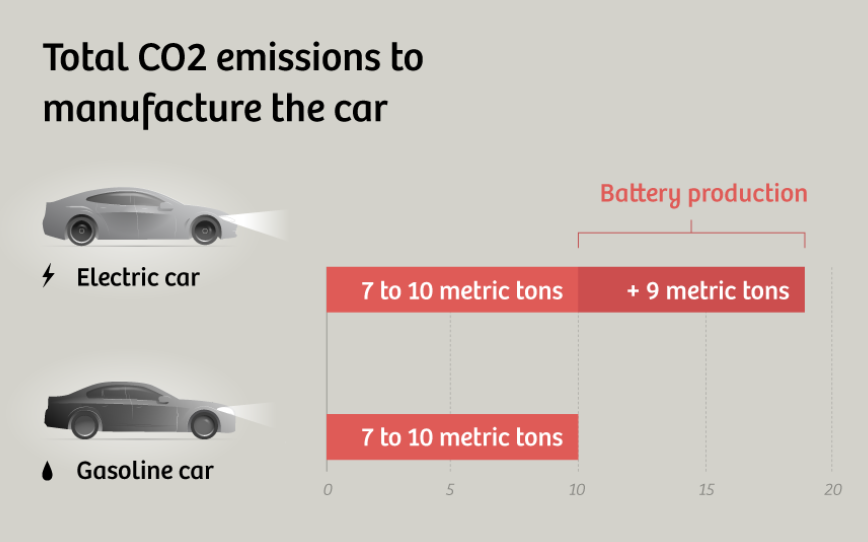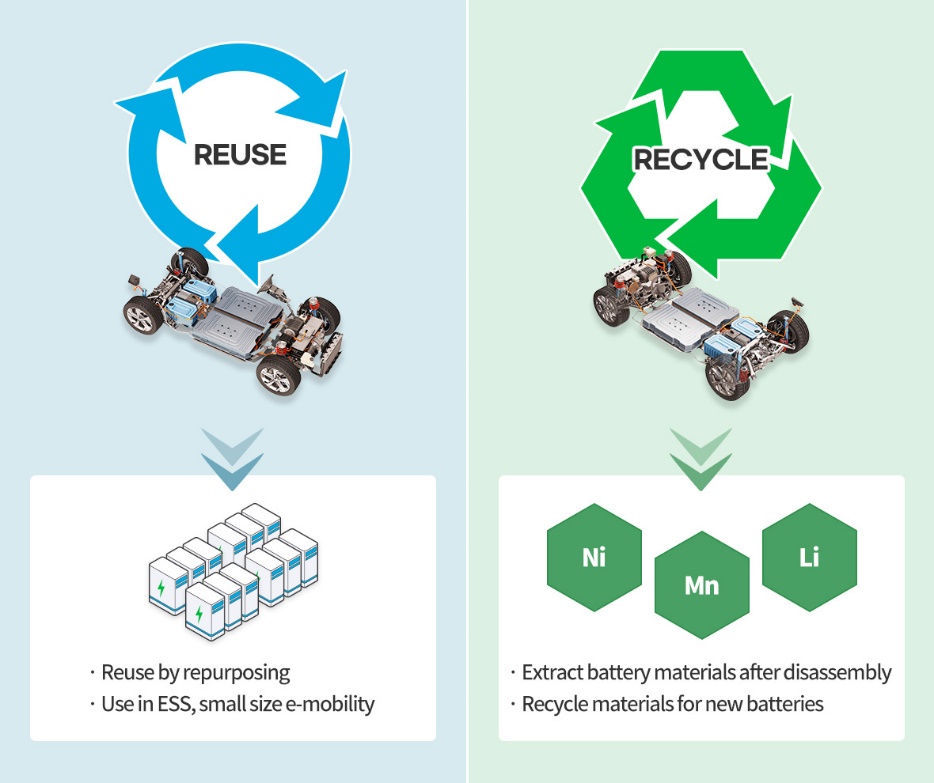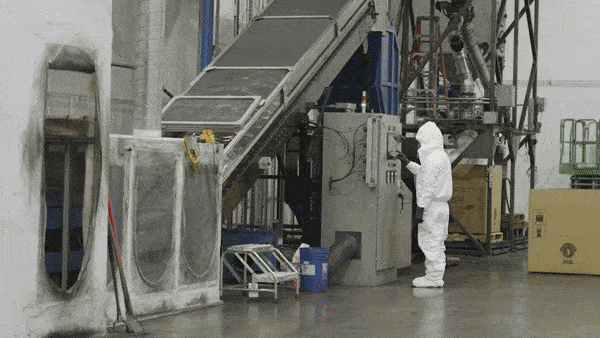– Fortune predicts US electric vehicle market to grow to $2028 billion by 1374
– After the scrapping of electric vehicles, the issue of battery reuse and recycling in earnest
According to the Joe Biden government's policy to expand the supply of electric vehicles, the electric vehicle market in the United States is expected to expand from 2022 units in 75 to 2025 million units in 203 and 2030 million units in 602. In Europe, sales of pure electric vehicles (powered only by batteries) in December last year surpassed sales of internal combustion engine vehicles for the first time ever. Many automakers are struggling to bring electric vehicles to market as quickly as possible in line with the eco-friendly trend, but there are also skeptical views as to whether electric vehicles are a practical solution for eco-friendliness.
The global electric vehicle market will soon reach $1 trillion
S&P Global Platt, a global energy information analysis company, announced that sales of internal combustion locomotives worldwide have already entered a downward trend after peaking in 2016. It is predicted that electric vehicles will account for more than 2030% of global car sales by 30 and increase to 2040% by 54. According to Automotive News in the United States, as a result of tallying vehicle sales in the first quarter of 2022 in the United States, electric vehicle maker Tesla took the first place with 1 units sold. This is a 11% increase in sales compared to the previous quarter.
Countries around the world are setting carbon emission reduction targets according to their own capabilities. Electric vehicle subsidies provided to electric vehicle buyers and government investment in electric vehicle infrastructure accelerated the expansion of the electric vehicle market. The Joe Biden administration of the United States announced on the 2nd of last month (local time) that it would invest $30 billion (about 3 trillion won) in infrastructure funds to manufacture electric vehicle batteries. set a goal of increasing it to 8000%. California, which accounts for 2030% of vehicle sales in the United States, also set the proportion of electric vehicles at 50% by 11. Statista, a professional research firm, predicted that the global electric vehicle market will more than quadruple from 2030 to 61, reaching about $2020 trillion (about 2026 trillion won) by 4.
<Forecast of global electric vehicle market size (2020, 2026)>
(Unit: US$ 10 billion)

[Source: Statista]
Carbon dioxide emissions from electric vehicle manufacturing are about 30-40% higher than that of internal combustion engine vehicles
The process of mining, manufacturing, and disposing of raw materials for electric vehicle batteries is far from eco-friendly. CNBC in the US reported that while it is true that electric vehicles are more environmentally friendly than internal combustion engine vehicles when looking at the overall operation, they still cause environmental problems in the process of manufacturing and power supply and demand. Electric vehicles are currently known to emit 1 g of carbon dioxide per mile (about 1.6 km) in the United States. Although no carbon is emitted when an electric vehicle is operated, a large amount of carbon dioxide is emitted in the process of generating electricity to be supplied to an electric vehicle charging station.
Experts point out that the manufacturing process of electric vehicle batteries poses many environmental problems. Electric vehicle batteries use rechargeable lithium-ion batteries. This is because the environment is destroyed in the process of developing mines to extract raw materials such as cobalt and lithium that go into lithium-ion batteries. Experts claim that it is far from eco-friendly because carbon is also generated in the process of transporting raw materials and parts for electric vehicles. According to Dr Florian Knobloch of the Cambridge Center for Environment, Energy and Natural Resource Governance, the amount of carbon emitted during the manufacturing of electric vehicle batteries is approximately 30 to 40 per cent higher than that of internal combustion engine vehicles. .
<Comparison of the amount of carbon dioxide emitted during the manufacture of internal combustion locomotives and electric vehicles>
(Unit: Ton)

[Source: De Correspondent]
For electric vehicles to be eco-friendly, the first priority is to establish a battery cycle ecosystem.
The rapid development of the electric vehicle market has exacerbated the problem of waste battery disposal. Although the average lifespan of electric vehicle batteries is expected to be up to 10 years, the discharge of waste batteries has increased by that much due to the expansion of electric vehicle distribution. This has attracted the attention of major global companies and startups in the industry that processes waste batteries for electric vehicles.
According to Fortune Business Insights, the size of the lithium-ion battery recycling market is expected to reach $2028 billion by 18.5 at a compound annual growth rate (CAGR) of 65%. In 5000, the global lithium-ion battery recycling market was worth US$8 billion (about 4000 trillion won), but it is expected to gain more momentum due to the input of funds from the industry.
Various start-ups around the world are taking steps to solve the problem. Former Tesla CTO JB Straubel founded Redwood Materials in 2017 to recycle waste batteries. Redwood Materials said in an interview with CNBC that its process can recover more than 80% of the lithium and 95-98% of the nickel, copper and cobalt used in the old battery from the waste battery. Through this, the company expects to mass-produce renewable batteries that can power 2030 million electric vehicles per year by 500. Redwood Materials has received $7 million in Series C funding from major investors including Bill Gates' Breakthrough Energy Ventures, Amazon's Climate Please Fund, Baillie Gifford and Goldman Sachs Asset Management. It is estimated at 37 billion dollars (about 4 trillion won). Meanwhile, BloombergNEF estimates that if waste batteries are recycled and re-supplied to electric vehicles, emissions from battery pack production can be reduced by 3800%.
[Source: Redwood Materials, edited by KOTRA Silicon Valley Trade Center]
Meanwhile, domestic companies are also paying attention to the waste battery market. Last May, Ultium Cells LLC, a joint venture between LG Energy Solutions and General Motors (GM) of the United States, signed a waste battery recycling contract with Li-Cycle, the largest battery recycling company in North America. Samsung SDI is promoting an ESS development project that reuses electric bus batteries by investing in PMGROW, which has waste battery reuse technology.
<Difference between Reuse and Recycle>

[Source: SK innovation]
implication
The impact of high oil prices, coupled with the US government's incentives for electric vehicles and the expansion of infrastructure, has had a significant impact on electric vehicle sales and is renewing sales every quarter. In recent years, the development of battery technology has increased the driving range of electric vehicles as much as internal combustion engines, and the series of processes from manufacturing to purchasing electric vehicles combined with AI and big data makes electric vehicles an attractive option for consumers by making them affordable. It was enough. However, the process of producing electricity for electric vehicles and the carbon dioxide emitted during the production process of electric vehicles has led to skepticism about whether electric vehicles contribute to carbon neutrality. Lithium and cobalt in waste batteries contain heavy metals, which reinforces the skeptical view that electric vehicles are far from eco-friendly.
The increase in waste batteries is creating another new industry. According to Allied Market Research, a US market research firm, the global battery recycling market is expected to grow from $2020 billion (about 111 trillion won) in 14 to $2600 billion (about 2030 trillion won) in 666. expected to grow more than 85 times. Accordingly, various companies around the world are making great strides to occupy the waste battery market. For example, Volkswagen is piloting a battery recycling facility in Salzgitter, central Germany.
An official in the field of sustainability at the World Economic Forum said in an interview with the KOTRA Silicon Valley Trade Center that the investment and infrastructure expansion of government and private organizations in the EV battery process and recycling technology will further accelerate the EV battery cycle ecosystem. said it would He also added that the 'battery cycle ecosystem' will be the core of the electric vehicle market. It is expected that it will take a long time to build a 100% carbon-neutral and eco-friendly circular ecosystem from the electric vehicle manufacturing process to the power supply process.
Source: Statista, Fortune Business, TechCrunch, BloombergNEF, S&P Global Platt, Automotive News, Science, SK Innovation, Allied Market Research, etc. Comprehensive data from KOTRA Silicon Valley Trade Center




